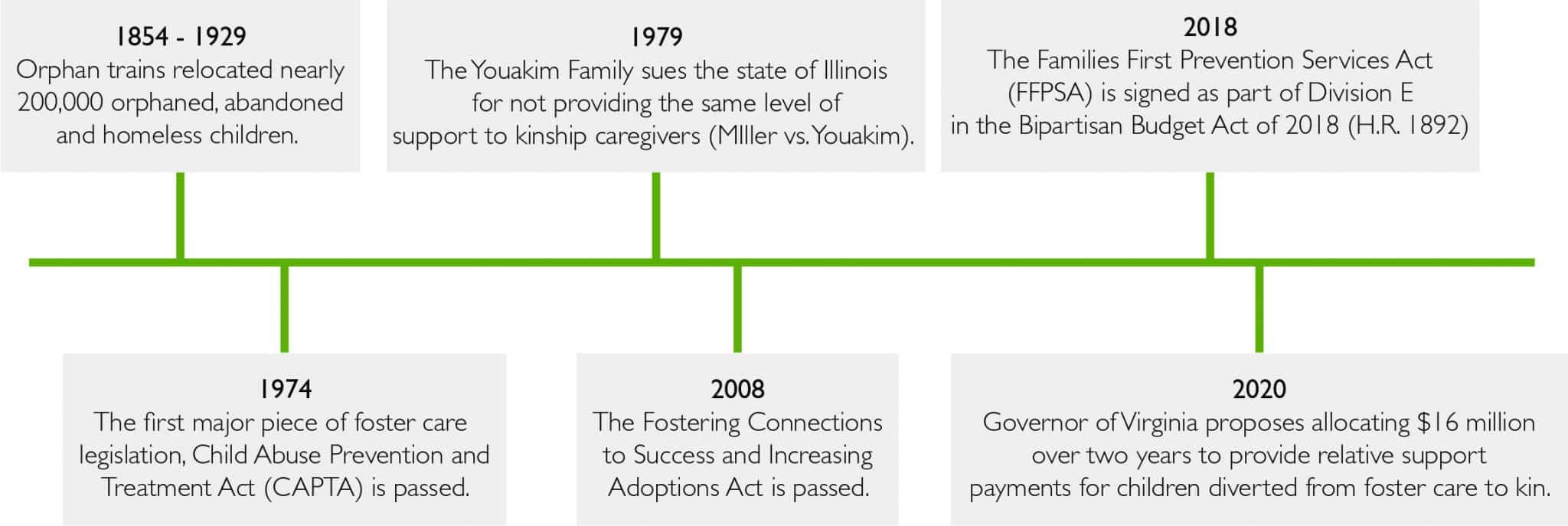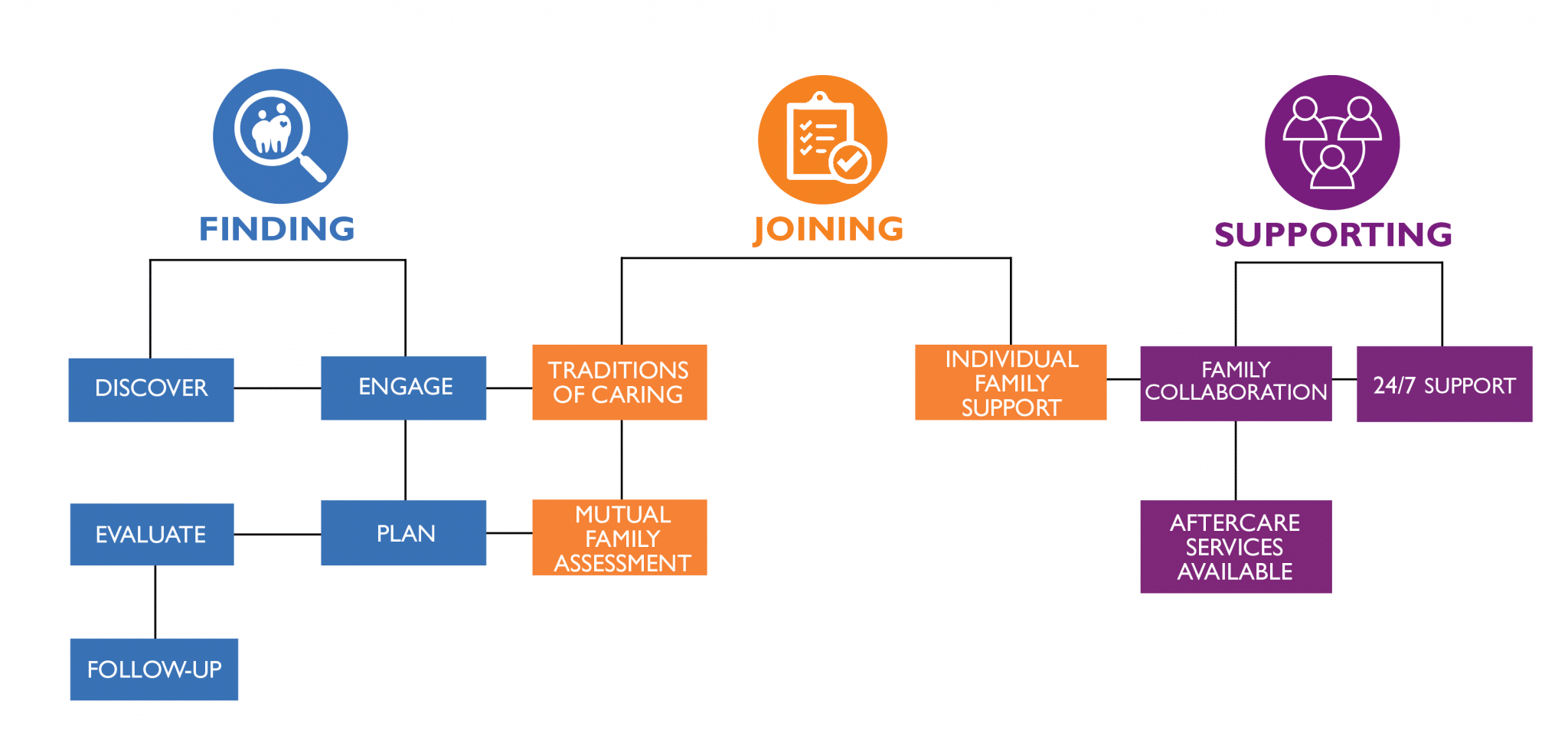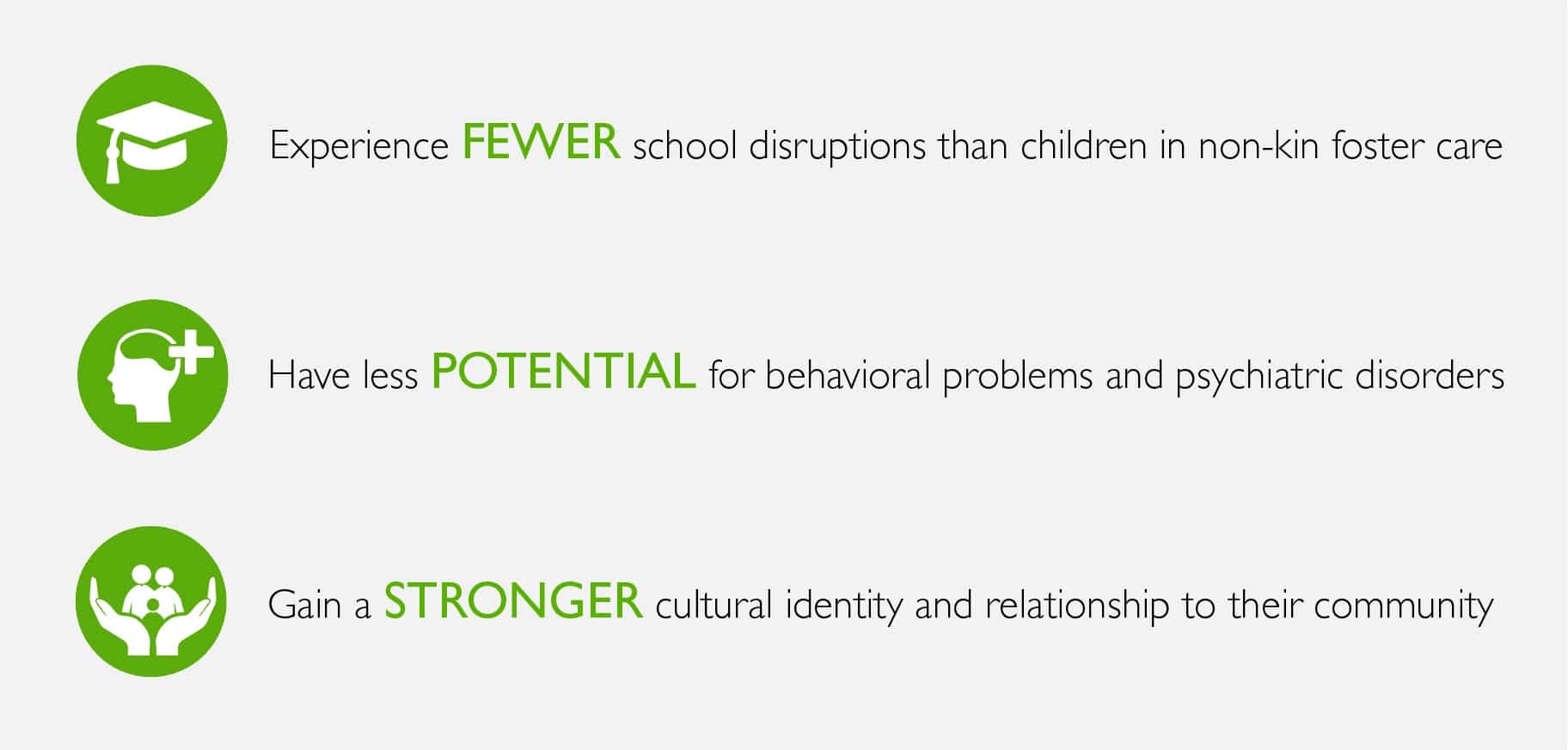Kinship Treatment Foster Care
Leading with a Kin-First PhilosophyEvery child has the right to grow up in a safe, loving, and nurturing home environment with their parents, relatives, or those with whom they have a family-like relationship.
A wide body of research supports the notion that children do best with kin and that family connections are vital to healthy child development, sense of belonging and to preserving a child’s cultural identity and relationship to their community.
Kinship Treatment Foster Care
Leading with a Kin-First Philosophy
Every child has the right to grow up in a safe, loving, and nurturing home environment with their parents, relatives, or those with whom they have a family-like relationship.
A wide body of research supports the notion that children do best with kin and that family connections are vital to healthy child development, sense of belonging and to preserving a child’s cultural identity and relationship to their community.
What is Kinship Treatment Foster Care?
Kinship Care is defined as the full-time care, nurturing, and protection of a child by relatives, members of their Tribe or clan, or godparents, stepparents, or other adults who have a family relationship to a child (often referred to as fictive kin).
Kinship Treatment Foster Care serves children and youth with treatment needs who are placed in out of home care with family members or fictive kin. Access to the full array of training, services, and supports available through treatment foster care are provided to families to promote safety, stability, and permanency.
A Deep History
Kinship care predates the formal child welfare system, which was not created until the 19th century. This system was originally designed to care predominately for orphaned European immigrant children.
To learn more about the history of kinship care and our kin first philosophy, download our white paper here.

Accessing our Kinship Services
At UMFS, we work with the local department of social services to find and place a child that has been identified as appropriate for securing connections and/or permanency. We can begin our support through our family finding services if a child’s kin has not already been located, or we can partner with an identified family to provide training and support.

UMFS’ Training and Approval process is specifically designed with kin in mind. We have modified our language in all documentation, and all staff are trained in Traditions of Caring – a model for supporting kinship caregivers. Traditions of Caring was created out of nine needs identified by kinship families and can be made to fit each family’s specific needs. Our social workers are trained Family Finders and have at least a Bachelor’s degree and two years of experience working in child welfare.
Stories of Success
“IT’S BEST TO KEEP THE BONDS OF FAMILY STRONG.” – SHERRIKA JONES
When Sherrika Jones learned in 2015 that she had a young cousin in foster care, she and her husband immediately contacted social services and expressed their desire to adopt.
Watch the video below to learn more about Sherrika and George’s experience with UMFS and Kinship Treatment Foster Care, or read about their experience by clicking here.
Research Based with Proven Outcomes
Research shows* that children raised in the care of kin (or fictive kin):

Hard Things Are Worth Doing
Interested in taking a deeper dive into the process and learning more about the impact of Kinship Treatment Foster Care from a family’s perspective? For 18 years, Naomi has played more than just the role of aunt to her nephew David. With the help of Kinship Care, Naomi and her husband, Chris, are now David’s legal guardian. Watch the interview for their heartwarming story.
Together We Can Increase Connections
We believe together we can increase family connections and outcomes for our communities. To learn more about our Kinship Treatment Foster Care services or to refer a child, please call your location below:
Richmond: 804.353.4461
Fredericksburg: 540.898.1773
Northern Virginia: 703.941.9008
Tidewater: 757.490.9791
South Hill: 434.447.8630
Lynchburg: 434.846.2002
Farmville: 434.391.3076
